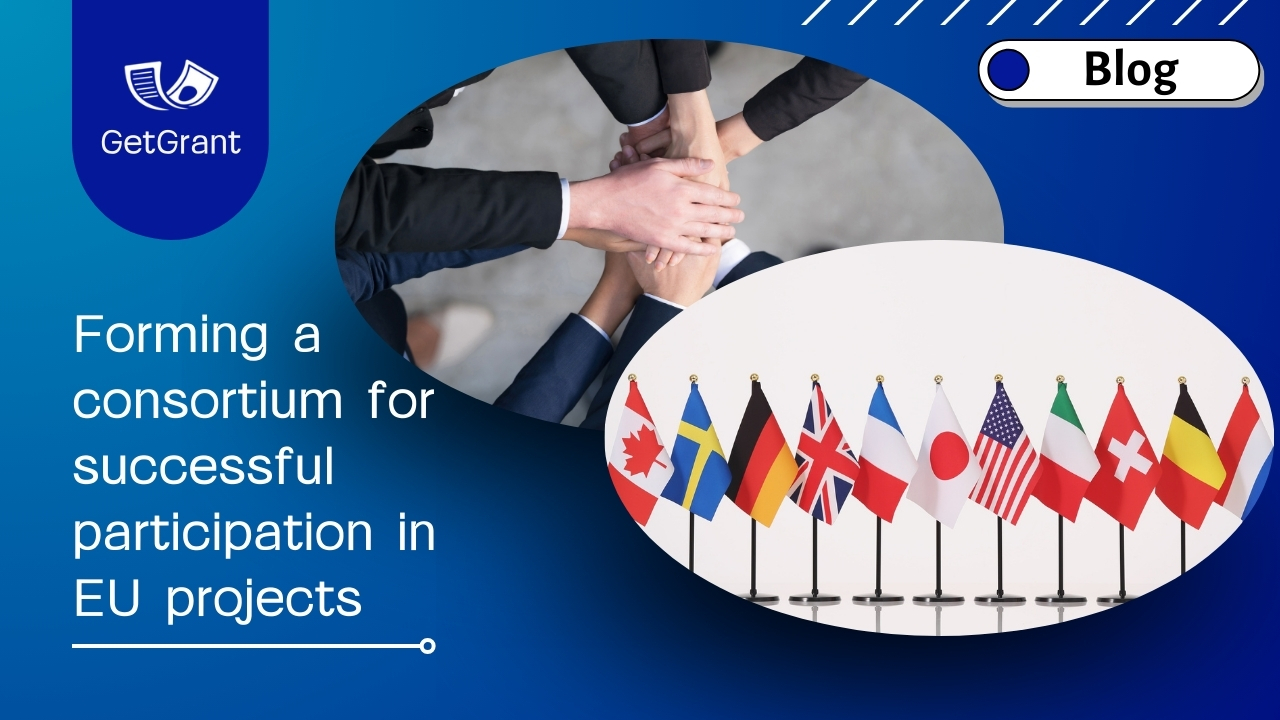Participating in European Union funding programmes offers significant opportunities for funding innovative, educational and research initiatives. However, most of these programmes – such as Horizon Europe, Erasmus+, LIFE, Creative Europe and others – are multi-beneficiary and require the involvement of several organisations from different countries. This means that in order to submit a successful application, it is essential to build a strong consortium bringing together partners with complementary competences and resources.
Partnerships play a crucial role in grant activities, as the success of the project depends on the quality of the team, its financial and administrative capacity, and its potential impact on society or industry. Choosing the right partners can help
- Increase the competitiveness of the project proposal;
- Combine knowledge and experience to achieve maximum results;
- Optimise the financial and administrative aspects of project management;
- Build long-term cooperation for future initiatives.
Given the importance of partnerships, the key question is Where and how to find partners for a consortium? In addition to official platforms, personal contacts and participation in professional events play an important role. Below we outline the main methods for finding partners and useful resources for building a strong consortium.
1. Using official platforms to find partners.
The European Commission provides several tools for finding potential partners:
1. Funding & Tenders Portal – includes a “partner search” section where organisations can find each other based on project themes or keywords. In addition, each specific call includes a partner search function.
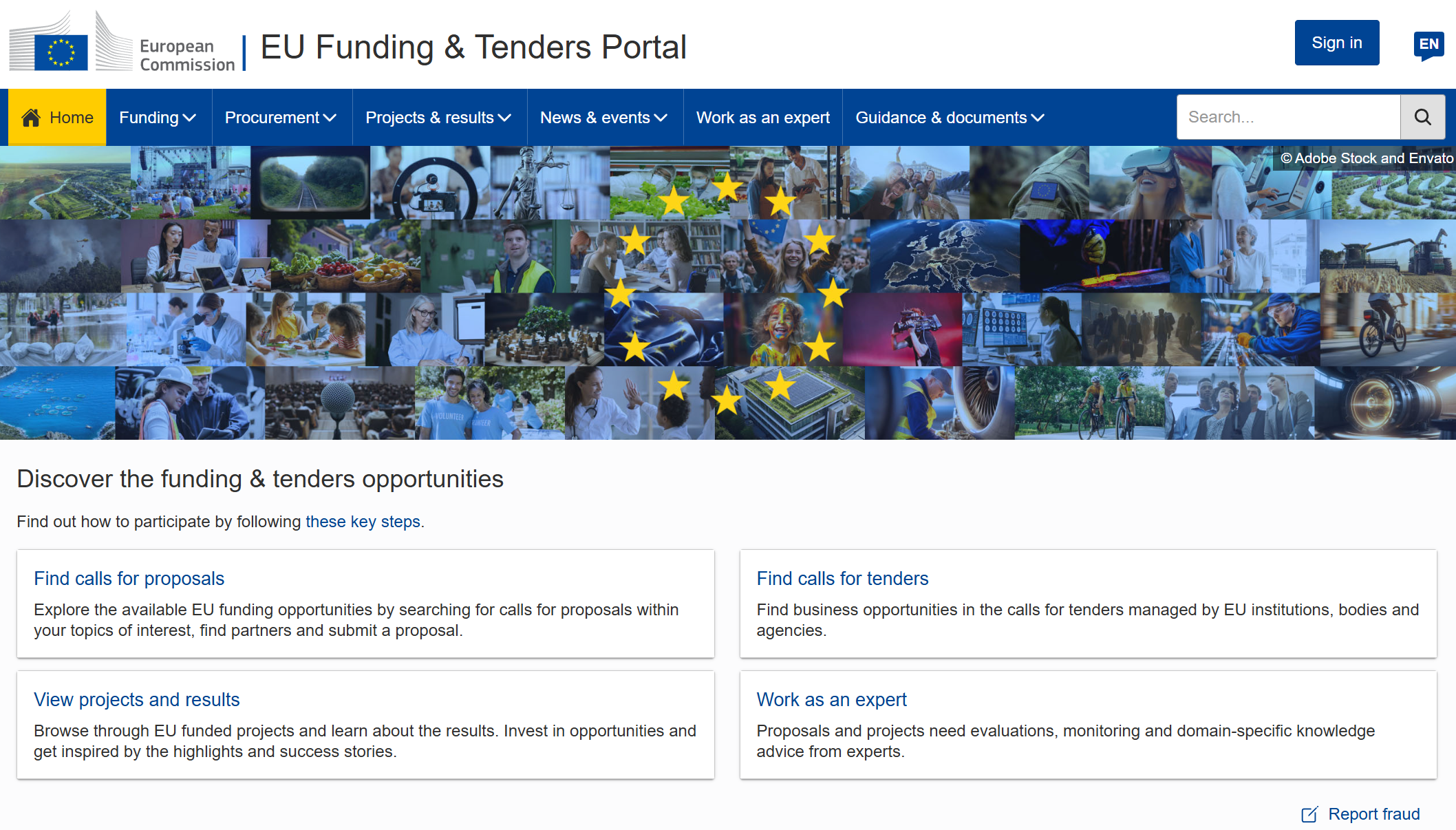 2. Ideal-ist – a network of national contact points specialising in ICT, providing tools for partner searches and the exchange of project ideas.
2. Ideal-ist – a network of national contact points specialising in ICT, providing tools for partner searches and the exchange of project ideas.
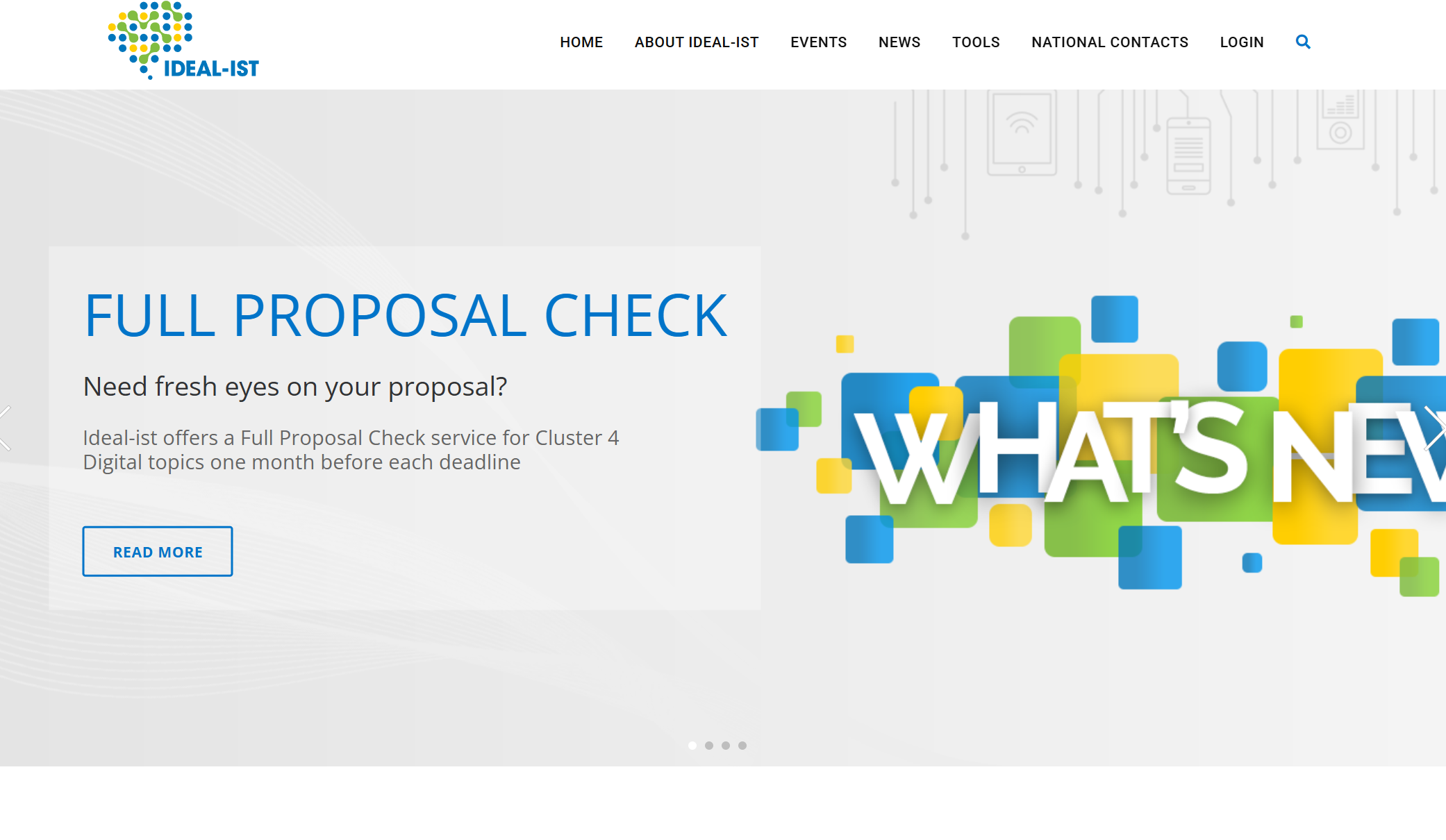 3. CORDIS – a platform providing information on previously funded projects and their partners, helping you to identify experienced participants for your consortium. Check out CORDIS.
3. CORDIS – a platform providing information on previously funded projects and their partners, helping you to identify experienced participants for your consortium. Check out CORDIS.
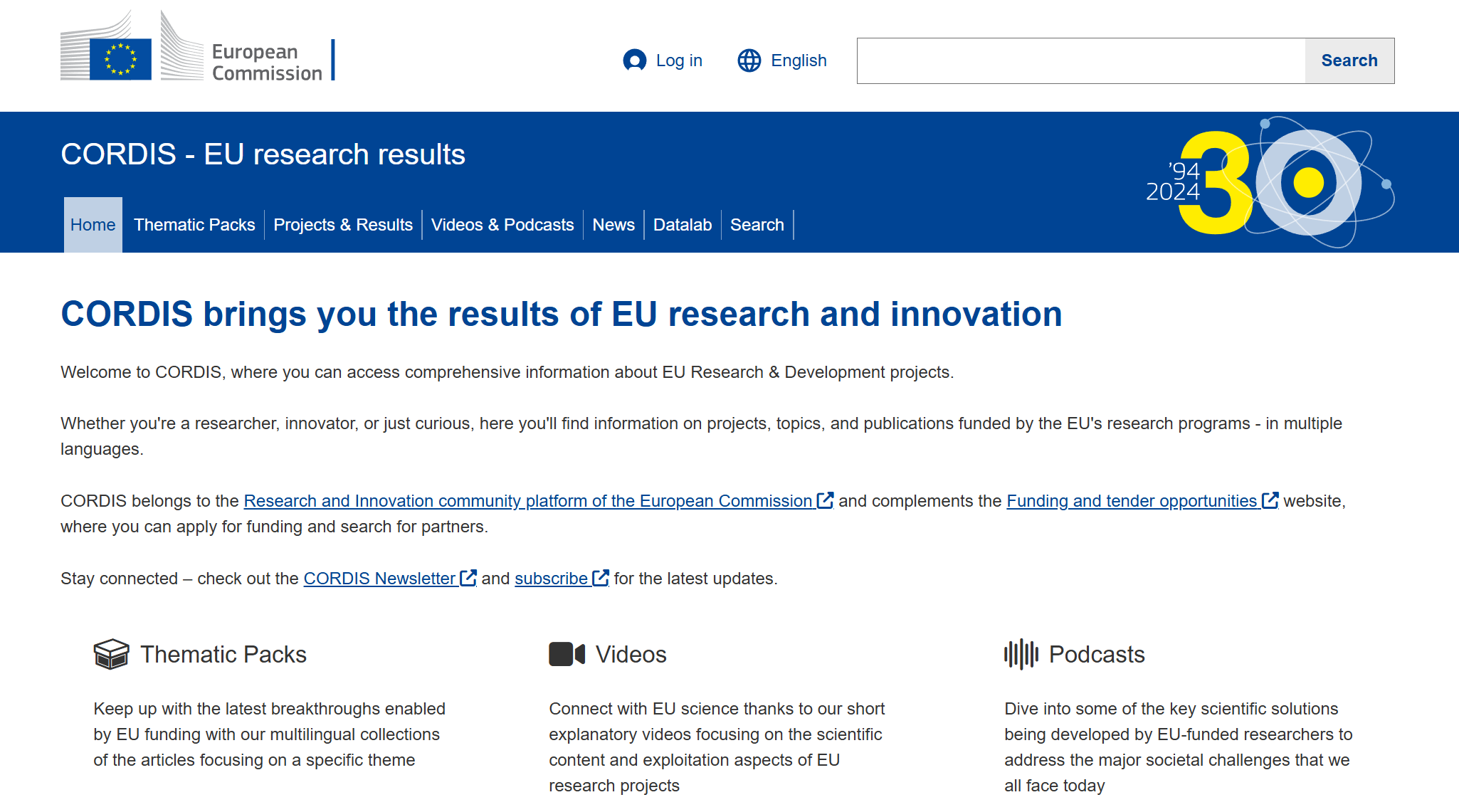 4. EUpartnersearch – a free service to facilitate the exchange of ideas and partnerships. Access the platform.
4. EUpartnersearch – a free service to facilitate the exchange of ideas and partnerships. Access the platform.
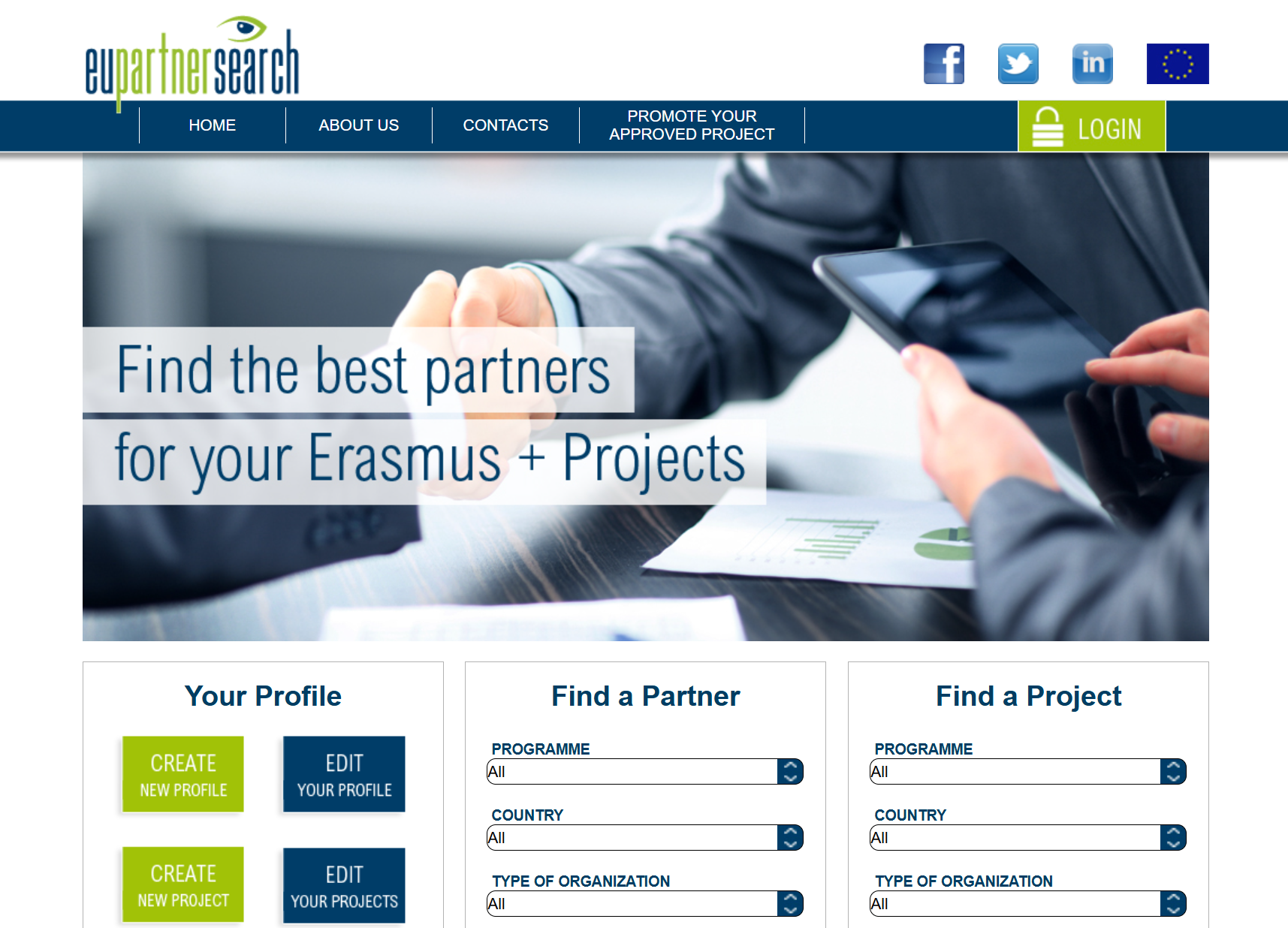
5. EPALE – an electronic platform for adult education in Europe which allows users to find partners for adult education projects.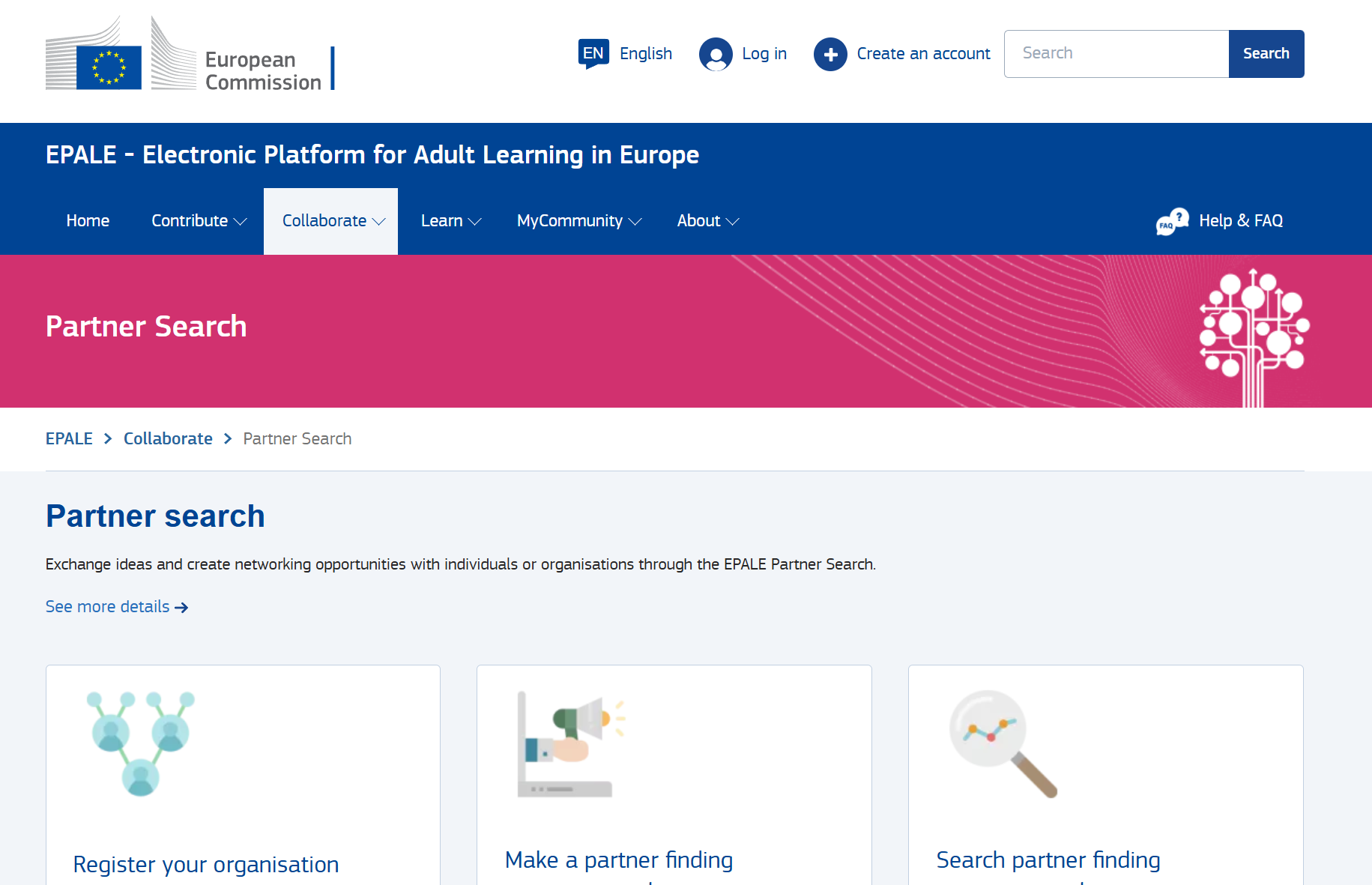
2. Face-to-face contacts and professional events
While online platforms are effective, personal contacts and professional events often play a crucial role in finding partners. Here are some ways to make connections:
- International conferences and seminars – attending thematic events allows you to meet potential partners and discuss common interests.
- Brokerage events and EU information days – organised within the Horizon Europe and Erasmus+ programmes – provide opportunities to present your organisation and find partners. Many of these events are organised through the B2Match platform.
- Professional networks – platforms such as LinkedIn and Facebook groups are valuable for finding partners, as members often post partnership requests.
- Collaboration through COST Actions – COST (European Cooperation in Science and Technology) supports international research networks, which can be an excellent basis for participation in Horizon Europe.
- Special platforms for finding partners (GetGrant Service) – for example, on our service, in addition to searching for grants, you can search for partners for your projects using an automated AI-based search system (with a database of more than 80,000 potential partners).
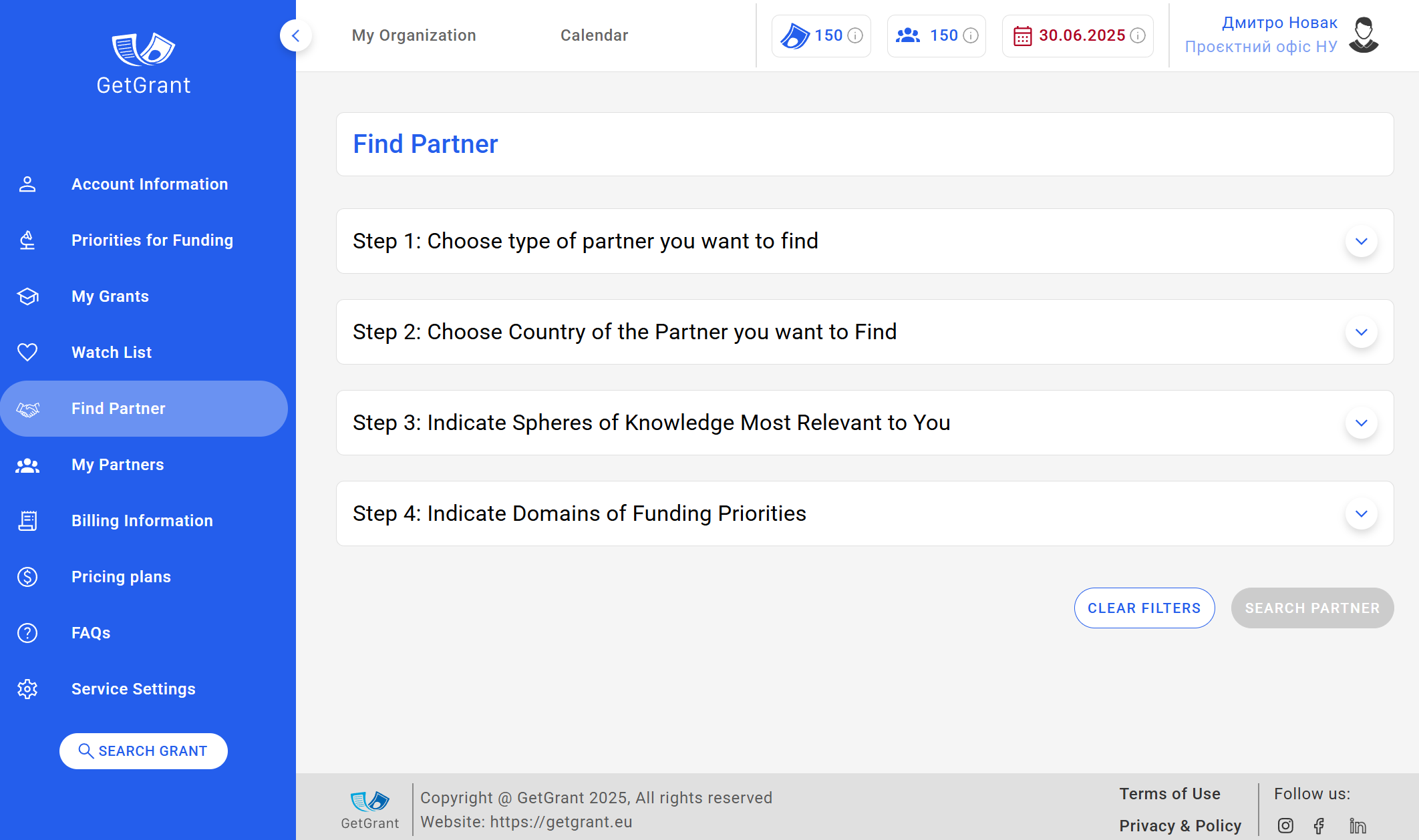
3. Contact the National Contact Points (NCPs)
National Contact Points (NCPs) provide advice and assistance in finding partners:
- The Horizon Europe Office in Ukraine provides a database of contacts and assistance in preparing consortia.
- The National Erasmus+ Office in Ukraine has a contact database and can help you find partners.
- Enterprise Europe Network (EEN) – a support network for small and medium-sized enterprises to help them find international partners for innovative projects.
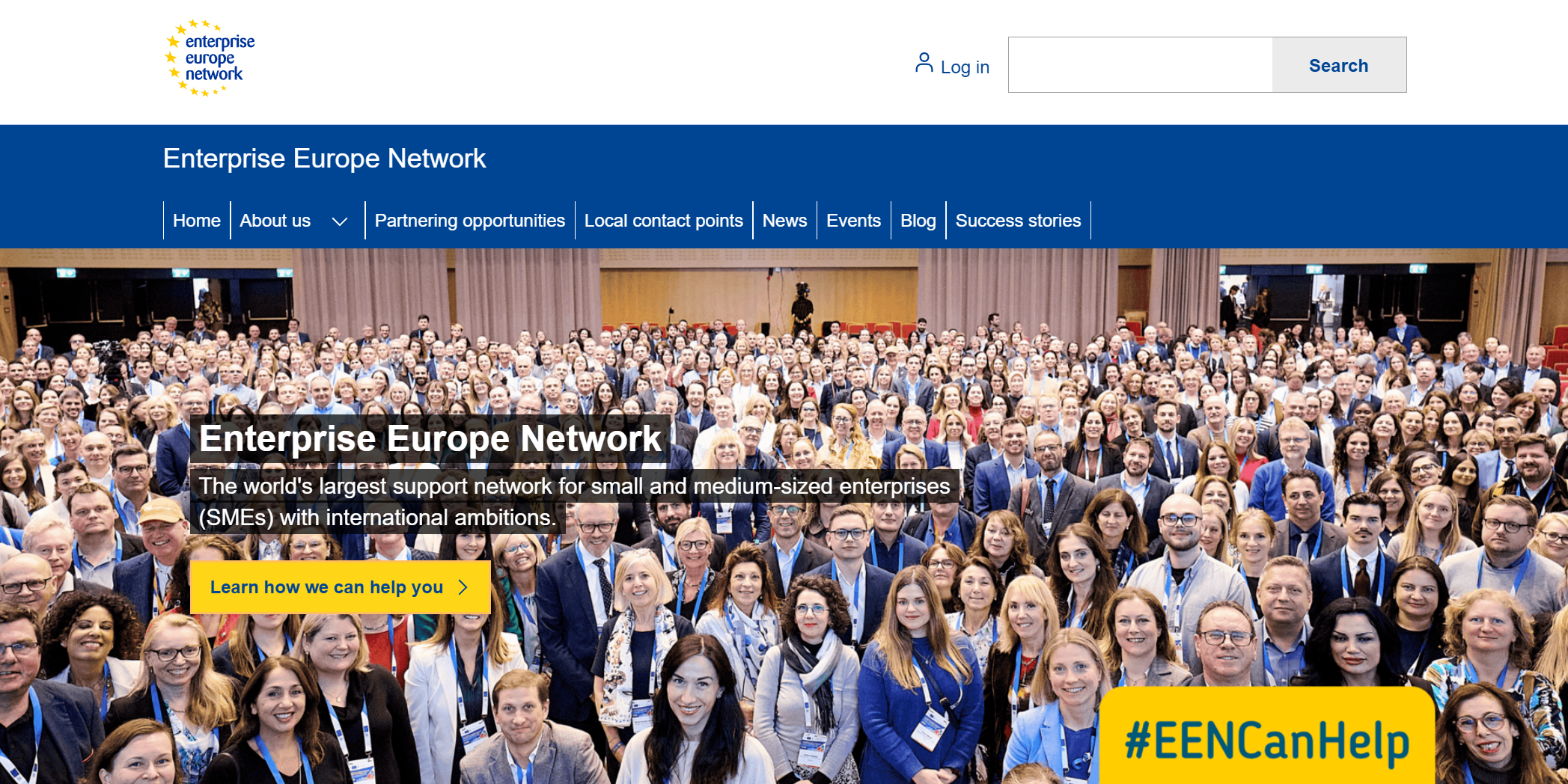
Building a strong consortium is one of the key factors for success. By using online platforms, thematic events, professional contacts and the support of NCPs, you can find reliable partners and prepare a competitive project proposal. Successful collaboration within a project can serve as a basis for long-term international partnerships, opening up new opportunities for your organisation in the future.
